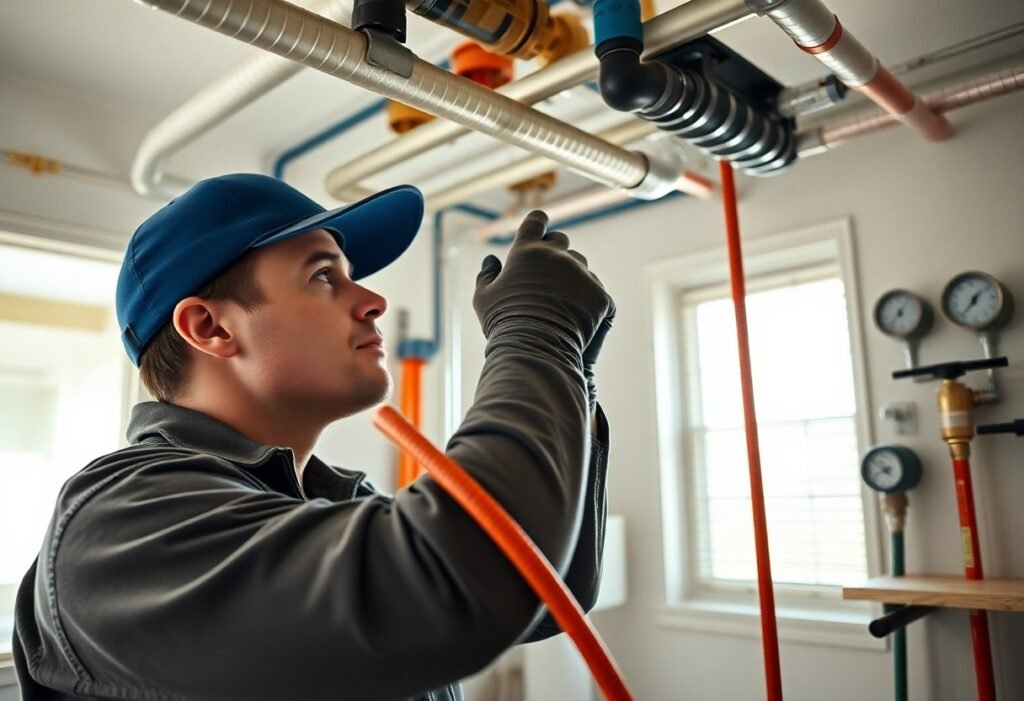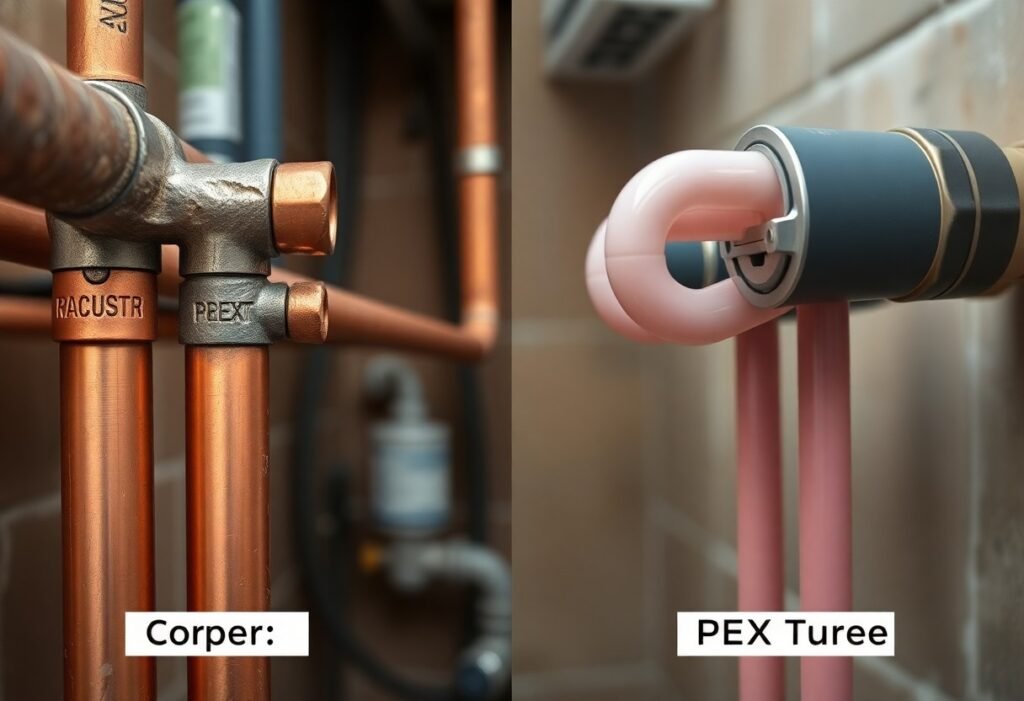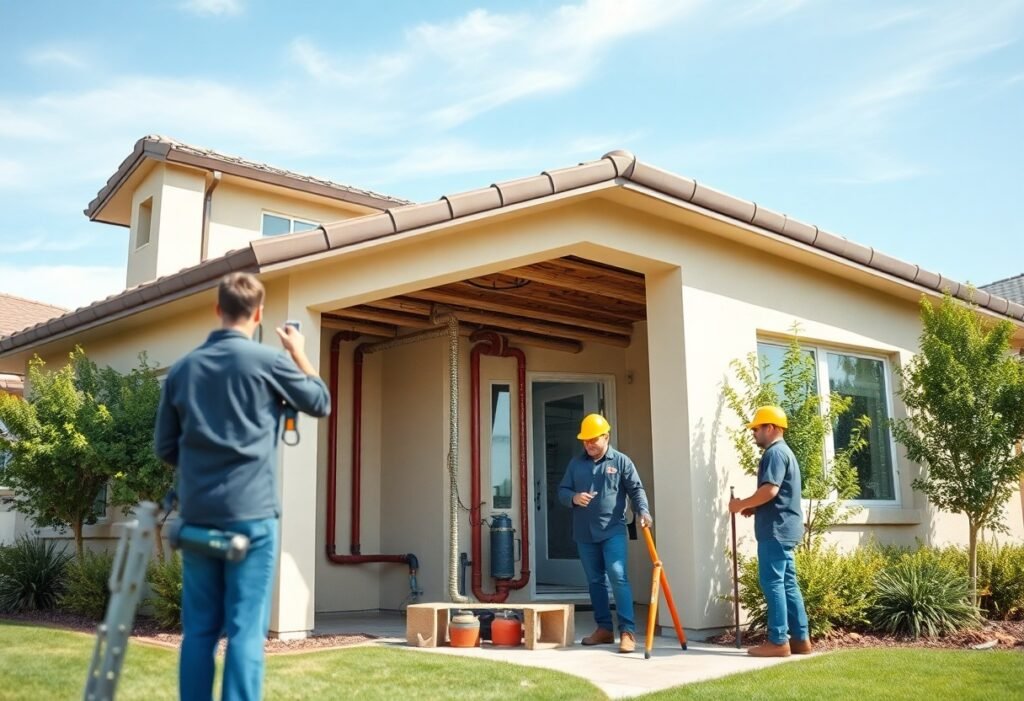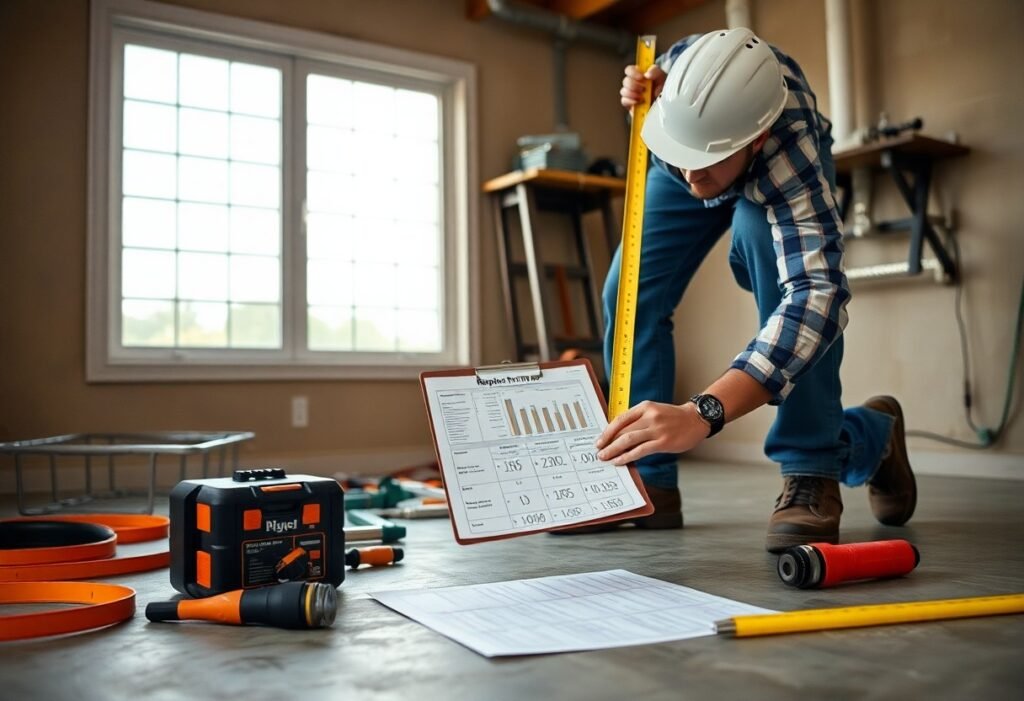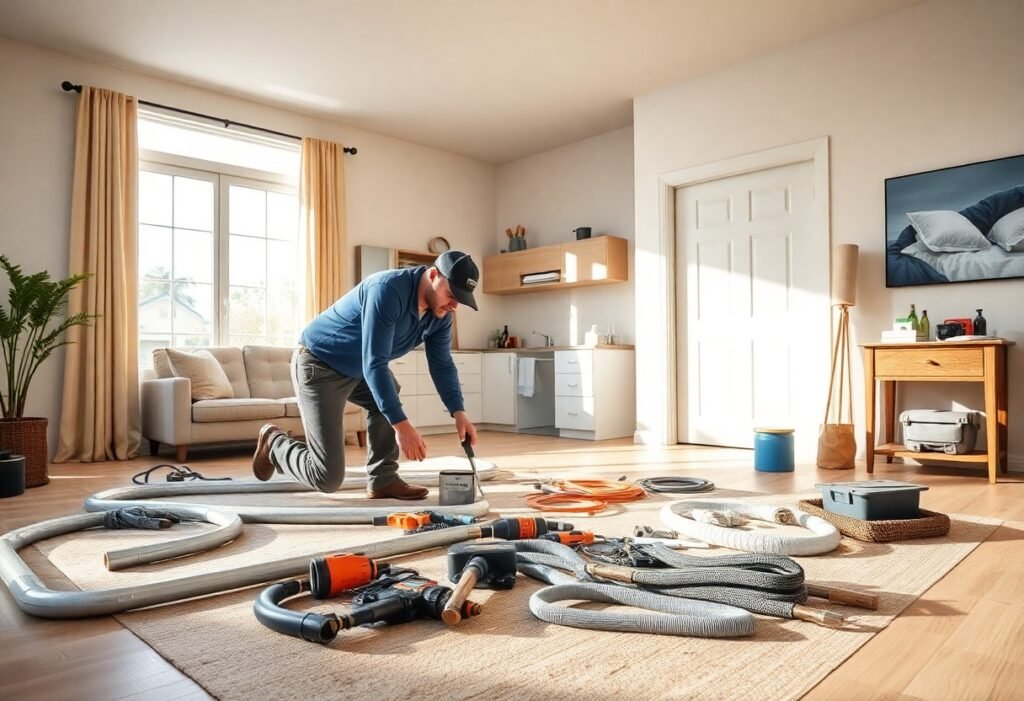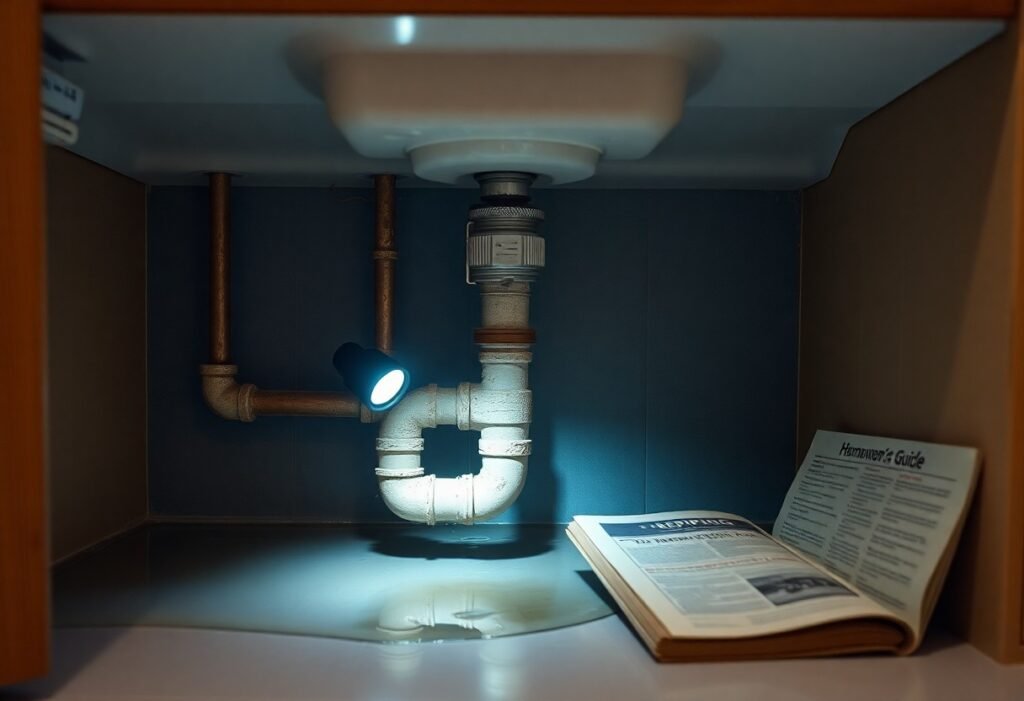Do You Need Whole House Repiping in Tustin, California? Signs to Watch For

With the age of your plumbing system, you may start to encounter various issues that signal the need for whole house repiping in Tustin, California. Recognizing these warning signs is vital to prevent costly damage and ensure your home remains safe and functional. Your pipes may exhibit symptoms like leaks, reduced water pressure, or even discolored water. Understanding these indications will empower you to make informed decisions, protecting not only your home but also your family’s health and comfort.
Key Takeaways:
- Look out for frequent leaks or water stains on walls and ceilings, which can signal deteriorating pipes.
- Changes in water quality, such as discoloration or an unusual smell, may indicate the need for repiping.
- Low water pressure throughout the home can be a sign of aging or clogged plumbing systems that may require full repiping.
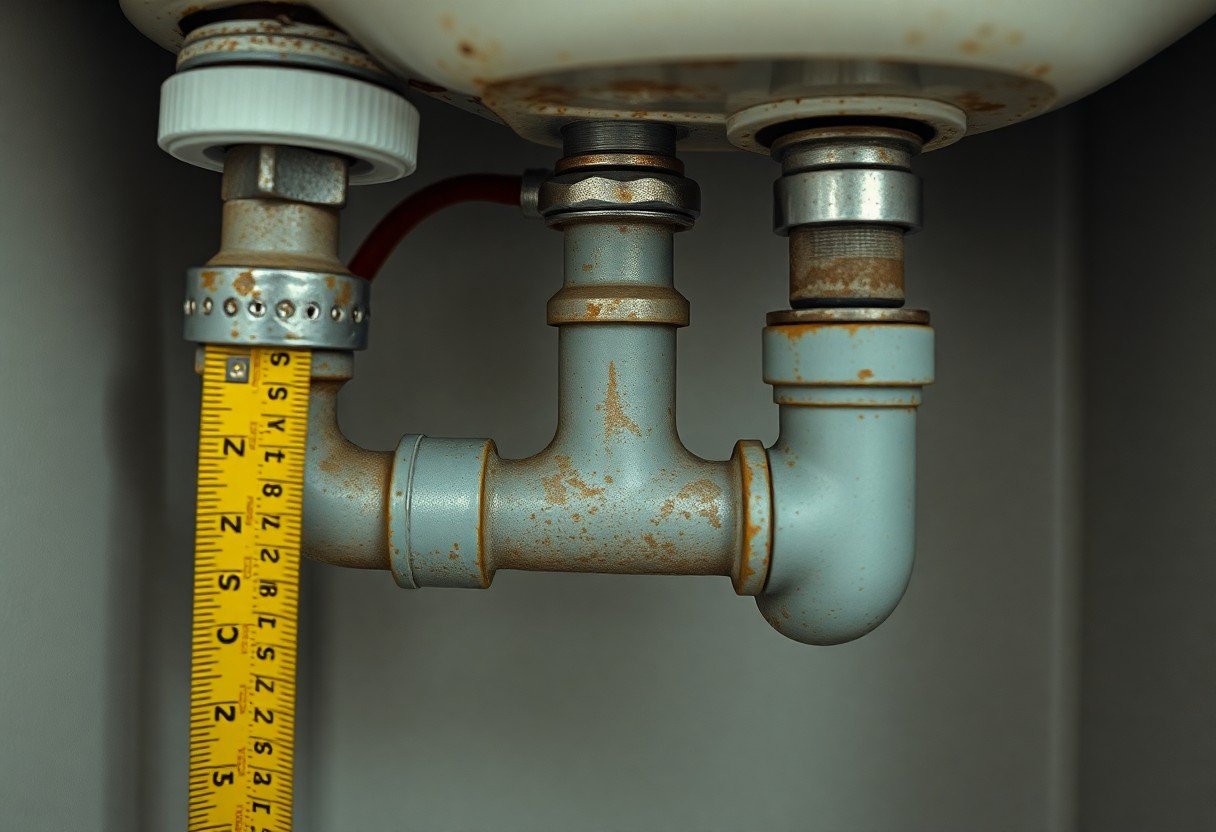
Is Your Plumbing Code Compliant?
Your plumbing system must adhere to local building codes to ensure safety and efficiency. If your pipes are old or corroded, they might not meet current standards, posing risks such as leaks, contamination, or even structural damage. Regular inspections are a wise measure to confirm that your plumbing remains compliant and operational, helping you avoid future headaches.
Age of Your Plumbing System
The age of your plumbing system plays a significant role in determining whether repiping is necessary. Older systems, especially those installed before the 1970s, often utilize materials like galvanized steel, which can rust and corrode over time. Systems older than 30 years may not only suffer from decreased water pressure but can also lead to increased risks of leaks or health hazards.
Materials Used in Your Water Lines
The materials used in your water lines directly impact the durability and safety of your plumbing. Homes built with copper, PVC, or PEX tubing tend to have longer lifespans, while older systems often feature materials like lead or galvanized steel, which can leach harmful substances into your water supply. Being proactive about assessing these materials ensures that your home remains safe and compliant with current standards.
Lead pipes are particularly concerning due to their association with serious health risks, especially in children. If your water lines consist of galvanized steel, expect frequent rust issues and potential pipe bursts. Polybutylene, once a common choice in the 1970s and 1980s, is now notorious for leaks and is largely phased out, leading many homeowners to consider whole house repiping as a suitable solution. Evaluating these materials not only protects your health but also enhances your home’s value.
The Warning Signs of Imminent Failure
Ignoring the early indicators of plumbing trouble can lead to significant damage and costly repairs. Identifying these warning signs promptly is crucial for safeguarding your home and plumbing system. Watch for unexpected changes and issues that may point towards the need for a complete repiping of your home.
Unexplained Water Damage
Unexplained water damage in your home can be a clear indicator of failing pipes. If you notice water stains on ceilings or walls that appear out of nowhere, it’s time to investigate further. This damage can occur due to hidden leaks in your plumbing system, leading to mold growth and structural issues.
Frequent Pipe Leaks
Experiencing frequent pipe leaks is a definitive sign that your plumbing system is in distress. If you find yourself constantly repairing leaks or dealing with both minor and major bursts, it’s often a symptom of corroded or brittle piping materials. Older homes may be particularly susceptible to this, with some pipes deteriorating more quickly than others. Over time, escalating repair costs can surpass the investment needed for complete repiping, suggesting you may want to consider a more permanent solution for your plumbing issues.
How Water Quality Reflects Pipe Integrity
Your water quality is a direct indicator of the integrity of your plumbing system. If you notice changes in taste, smell, or appearance, it’s a strong sign that your pipes may be deteriorating. This decline can be linked to rust, corrosion, or leaks that allow contaminants to seep into your water supply, making it imperative for immediate evaluation. Regular monitoring of your drinking water can help you identify potential issues before they escalate into serious plumbing problems.
Changes in Water Pressure
Fluctuations in water pressure can signal underlying pipe issues. If water flow suddenly drops or varies from strong to weak, it may indicate blockages or leaks in your plumbing system. These inconsistencies not only affect daily activities, but they can also lead to further damage if not addressed promptly. Often, this is a result of aging pipes or compromised materials that require attention.
Discoloration and Odor in Tap Water
Noticing a metallic taste or rusty color in your tap water? This could point to decaying pipes or sediment buildup. Such discoloration often results from corroding iron or lead pipes releasing particles into the water supply, posing serious health risks. Additionally, an unusual odor may indicate the presence of mold, bacteria, or other contaminants that require immediate investigation.
In particular, if your tap water comes out with a noticeable brown or rusty tint, it can indicate that iron pipes are corroding and releasing rust into the water. A metallic taste or smell of rotten eggs could suggest that hydrogen sulfide gas and other corrosive substances are present, primarily stemming from old or damaged plumbing. Both scenarios highlight the urgent need for inspection and possibly whole house repiping to ensure your water remains safe and clean for consumption.
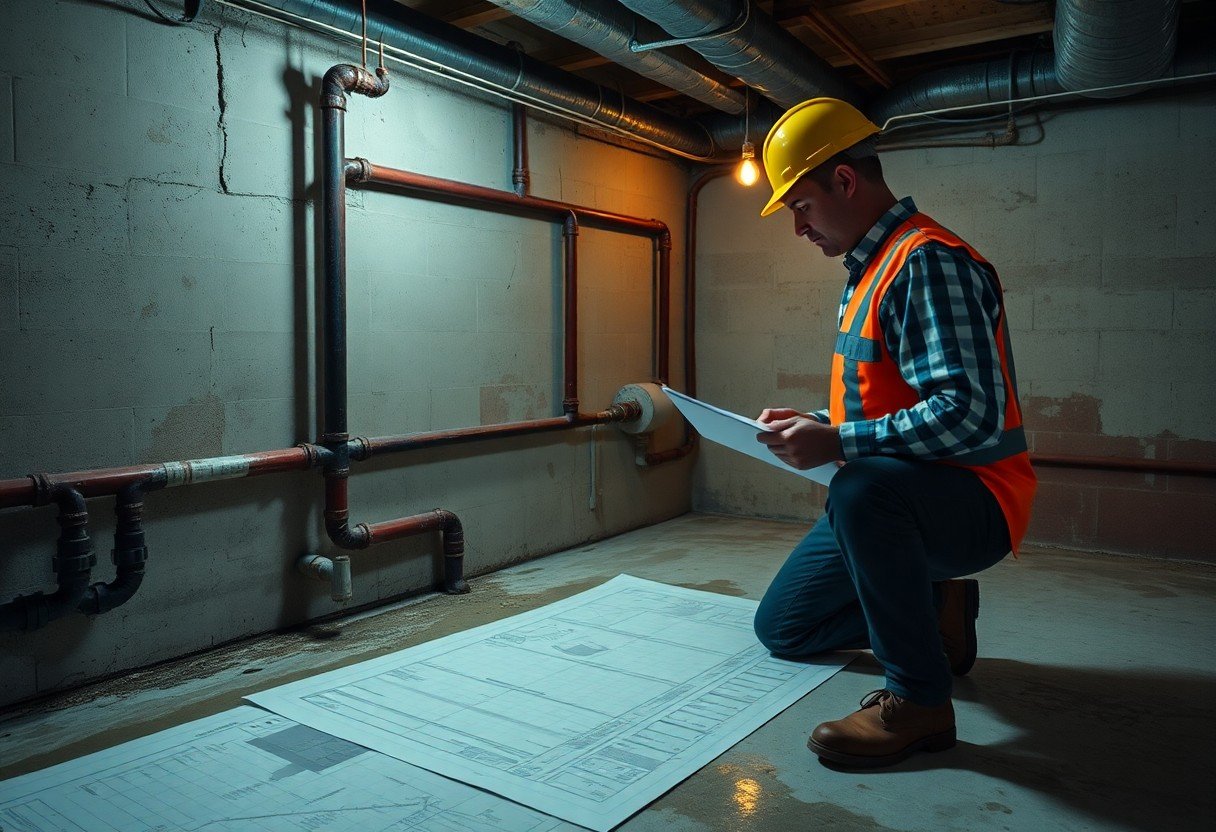
The Costs of Ignoring a Repiping Necessity
Neglecting the need for repiping can lead to escalating expenses that far exceed the initial costs of the project. You might initially save money on repairs, but in the long run, constant leaks, water damage, and the potential for mold growth can lead to significant financial burdens. Homeowners often find themselves dealing with increased water bills and emergency plumbing services, creating an all-around negative financial impact. For insights from homeowners facing similar repiping challenges, check out Repiping Home with PEX : r/orangecounty.
Short and Long-Term Financial Implications
Immediate fixes may seem cost-effective, but they provide only temporary relief. Without proper repiping, you risk long-term expenses rising from recurring plumbing issues and significant property damage. The average homeowner spends around $200 to $500 annually on plumbing repairs; however, ignoring repiping can increase this figure substantially over time.
Impact on Property Value and Marketability
Failing to address repiping can diminish your home’s overall marketability. Potential buyers often shy away from homes with outdated plumbing systems, fearing costly repairs. Therefore, your property value may significantly decrease if buyers perceive hidden plumbing problems lurking beneath the surface.
Homes with outdated plumbing are often valued lower than comparable properties equipped with modern systems. A new piping system not only enhances your home’s efficiency but can also serve as a strong selling point, attracting more potential buyers. By investing in repiping proactively, you preserve your home’s value and strengthen its appeal in the competitive Tustin real estate market.
Making the Decision: Repair vs. Repiping
Assessing whether to repair or repipe your plumbing system involves weighing the frequency and severity of issues against the overall condition of your pipes. Minor leaks may be resolvable through repairs, while consistent problems point to systemic issues. Consider the age of your pipes—if they are over 50 years old, full Repiping in North Tustin, CA | Lifetime Warranty might be the best path forward, ensuring you won’t face repeated repairs in the near future.
Evaluating the Benefits of Full Repiping
Choosing to repipe your home can provide enhanced water quality and pressure, eliminate repeated leaks, and address potential safety hazards associated with old materials. New pipes made of PEX or copper come with modern warranties and can increase your property’s value. Complete repiping ensures that you won’t struggle with the same issues again, offering peace of mind in the long run.
When to Consult a Professional
Consulting a plumbing professional should occur after noticing persistent leaks, discolored water, or low water pressure. Given these are common signs of underlying problems, a skilled plumber can assess your situation more accurately than DIY repairs. They can examine your system comprehensively and recommend if full repiping is the most effective solution.
Seek assistance from a licensed plumber if issues arise frequently or if the age of your plumbing raises concern. Attempting to tackle significant plumbing issues without professional guidance could exacerbate problems or lead to costly repairs. A professional has the expertise to identify hidden issues and can provide options tailored to your specific needs, ensuring a long-lasting and effective solution for your home.
Final Words
To wrap up, if you notice persistent leaks, low water pressure, or discolored water in your home in Tustin, California, it may be time to consider whole house repiping. Aging pipes can lead to further damage and costly repairs if not addressed promptly. By staying vigilant and recognizing the signs, you can protect your home’s plumbing system and ensure the safety and quality of your water supply. Don’t hesitate to consult with a professional if you suspect your plumbing needs an upgrade.
FAQ
Q: What are the signs that indicate I may need whole house repiping in Tustin, California?
A: There are several signs that suggest it might be time for whole house repiping. Look out for frequent leaks, especially in multiple areas of your home, which could indicate widespread pipe deterioration. Additionally, if you notice low water pressure or discolored water coming from your taps, this could be caused by corroded or damaged pipes. Lastly, if your home was built several decades ago and still has original plumbing, it’s wise to have a professional inspection to check for material degradation.
Q: How can corrosion in pipes affect my plumbing system and overall health?
A: Corrosion can significantly affect your plumbing system by causing pipe leaks and severe water damage within your home. As pipes deteriorate, they may also release harmful sediments and contaminants into your water supply. This not only compromises the quality of your water for drinking and cooking but can lead to health issues if lead or other hazardous materials are released into your home’s water system. Addressing this issue through repiping can help ensure clean and safe water for your family.
Q: What are the benefits of repiping my home in Tustin, California?
A: Repiping your home can lead to numerous advantages. Firstly, it improves water pressure by replacing old, corroded pipes that may be restricting flow. Secondly, you’ll likely experience fewer plumbing issues and repairs, saving you time and money in the long run. Additionally, having new pipes can enhance your home’s value and appeal to future buyers. Finally, new piping materials may offer better durability and longevity, ensuring a reliable plumbing system for years to come.

